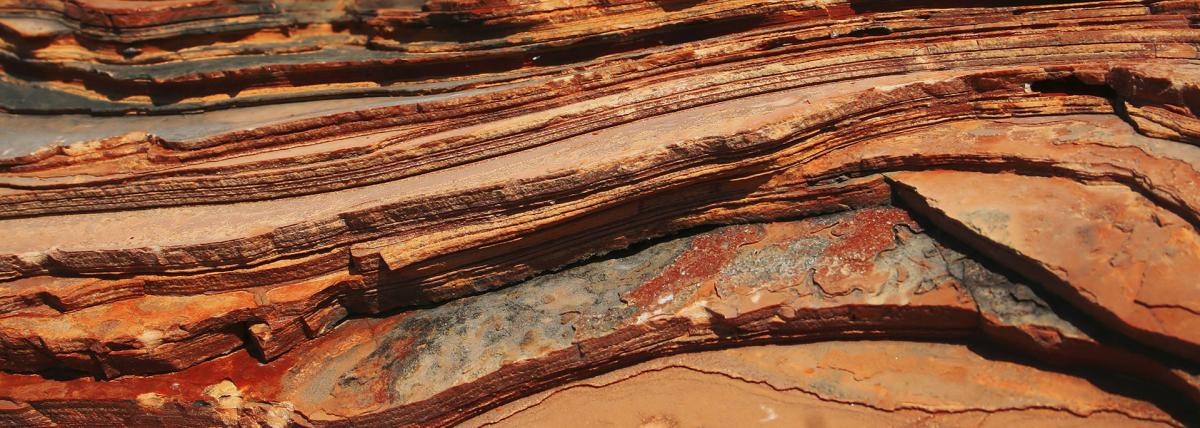Grades:
6th Grade
In this 1st lesson in a series of 3, students learn about the Great Pacific Garbage Patch. They create a model and write and defend a claim about humanity's ability to mitigate the problem. This
Grades:
3rd Grade
Summary: This lesson is geared towards 3rd graders but can be modified for upper and lower grades. Throughout the next 4 lessons they will describe the role of pollinators and explain their effects
Grades:
8th Grade
In this lesson students will gather data about local tree diameters. They will then estimate the approximate age of trees. Students build connections between a tree’s growth and environmental factors
Grades:
4th Grade
Students are experimenting on their own to find out which materials would create the best water filter, after reading The Water Princess and discussing water scarcity. This engaging lesson combines
Grades:
10th Grade
The lesson plan is about energy transfer in an ecosystem using beads. Students will participate in an interactive simulation about energy transfer. They will collect data and ultimately create a class
Grades:
1st Grade
What is the life cycle of a butterfly? How do butterflies use their wings? Answers to these questions and more are in this engaging lesson. The challenge for the students is to create a butterfly
Grades:
2nd Grade
This lesson is to introduce students to coding using EdScratch and Edison Robots. Students use LEGOs to build a house for grandma and figure out a way to keep her safe.
Grades:
5th Grade
In this engaging lesson, students work together to design a water filtration system to separate pollutants from water. This lesson takes about 120 minutes to complete. Various resources are included!
Grades:
8th Grade
In this lesson, students will explore how biomes differ in different parts of the globe. They will identify differences between biomes and collaborate with peers to gather environmental science data
Grades:
5th Grade, 6th Grade
In this lesson, students will collaborate and communicate effectively with peers to complete an engineering design challenge using the Engineering Design Process. Students will be using technology to
Featured
Not a Stick!
Grades:
Kindergarten
Students will participate in an engineering challenge or STEM activity that connects to a read aloud. They will be able to ask questions, make observations, and gather information about a situation
Grades:
5th Grade
This real-world lesson allows students to understand the impact of an oil spill on animals in the wild. Students experiment with ways to clean oiled animals. There is a literacy integration, hands-on
Grades:
3rd Grade, 4th Grade
This is lesson 4 out of a unit of 4 lessons about habitats. In the proceeding lessons, students researched habitats and animal adaptations. This lesson is a presentation of information using a variety
Grades:
8th Grade
In this lesson students analyze the relationship between rainfall and tree growth from a sample. They will then graphically model that relationship. This is the 4th lesson in a series of 4. Links to
Grades:
2nd Grade
In this engaging lesson, students discover what a volcano is and what causes it to erupt. There is a literacy integration, video resources, and other helpful information included.
Grades:
6th Grade
In this lesson, students will collaborate to design and engineer a product to contain and clean up an oil spill while saving the affected wildlife. They will also accurately complete an itemized
Grades:
5th Grade
In this creative lesson, students will create a simple machine to retrieve objects through a makeshift storm drain. There is a potential literacy integration and a focus on the engineering design
Grades:
6th Grade, 7th Grade, 8th Grade
This is an 8-lesson unit that is designed to be used together to learn about the health and diversity of your local watershed by placing leaf packs into a water source (natural or man-made ponds
Grades:
6th Grade, 7th Grade, 8th Grade
This is an 8-lesson unit that is designed to be used together to learn about the health and diversity of your local watershed by placing leaf packs into a water source (natural or man-made ponds
Grades:
3rd Grade
In this engaging lesson, students will create their own parade float using recyclable materials and code a parade route using Dash robots. Students will do this after hearing the story "Balloons over
Grades:
6th Grade, 7th Grade, 8th Grade
This is an 8-lesson unit that is designed to be used together to learn about the health and diversity of your local watershed by placing leaf packs into a water source (natural or man-made ponds
Grades:
3rd Grade
This lesson is the initial planning, sorting, and planting lesson to get Our Plot of Sunshine Curriculum started within a 3rd grade classroom. Can be modified for other grades, but math within this
Grades:
3rd Grade
In this lesson, students will research a variety of habitats. They will then use their research to document what they learned using technology. This information will be used in future lessons to build
Grades:
1st Grade
In this hands-on lesson, students will listen to "The Water Princess" by Susan Verde and then create their own water filtration system in a small group. Students will consider questions like, "How can
Featured Lesson Plans
Check out these notable lesson plans.

Grades:
4th Grade
This interactive 4th-grade lesson plan focuses on erosion and weathering, key concepts in understanding Earth's geology. In "Dynamic Earth," students use an interactive simulation to explore how

Featured
Sailing Down the Road: Part 2
Grades:
4th Grade, 5th Grade
This is part 2 of a two part lesson called Sailing Down the Road. In this lesson students will design a sail that can successfully catch the wind and cause their cardboard car (from part 1) to drive

Grades:
4th Grade
Explore Coal Mine Canyon's wonders! Watch a documentary, read about geology, draw the canyon, and use tech to learn about geological layers. Fun, interactive learning awaits!


